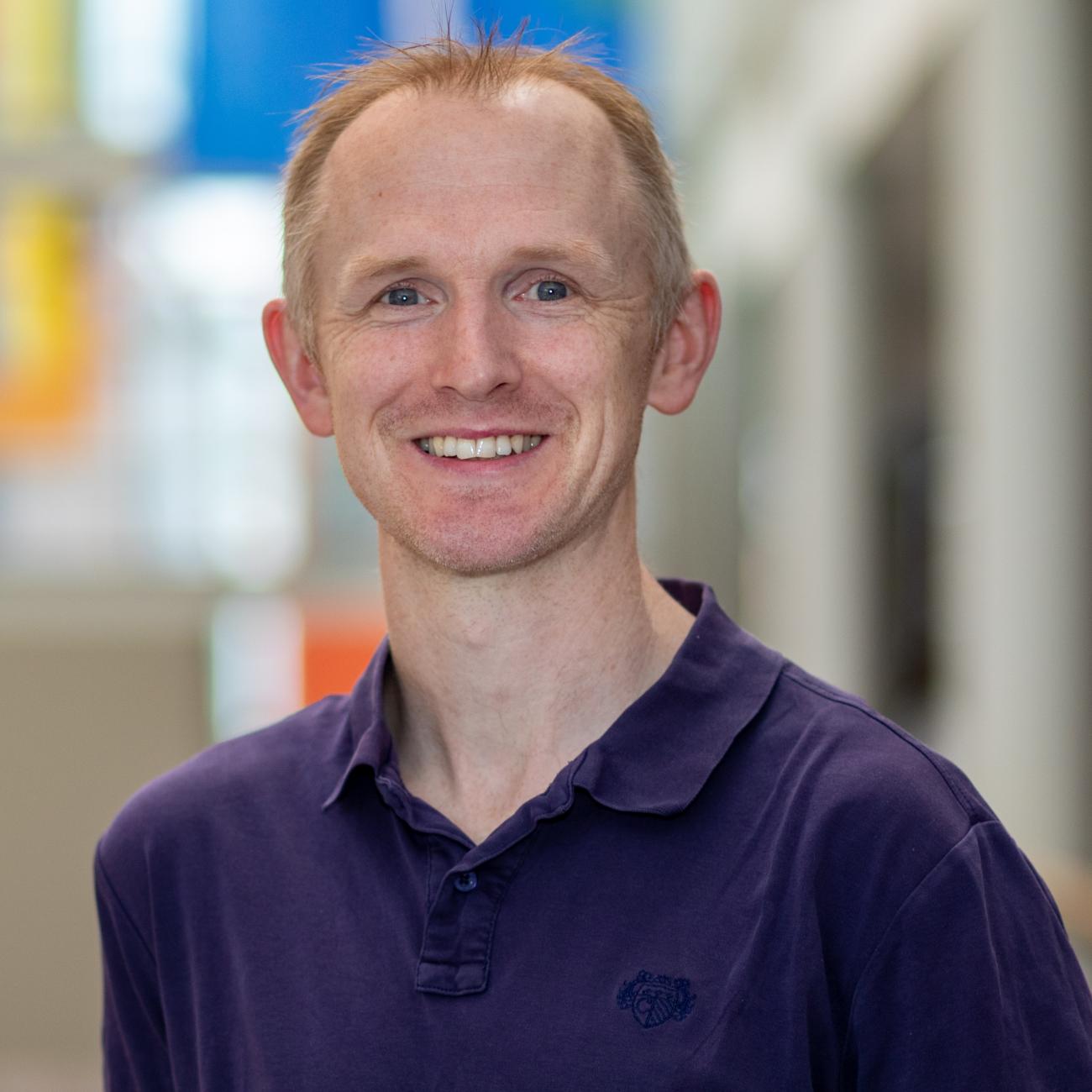Assoc. Prof
Michael
Freeley

Academic biography
Michael Freeley is an Associate Professor at Dublin City University (DCU). He obtained a first class honours degree in Biotechnology from DCU and subsequently graduated from the Royal College of Surgeons in Ireland (RCSI) with a PhD in Biochemistry and Immunology. His PhD thesis investigated the role of Protein Kinase C isoforms in T-cell activation. After working in RCSI as a postdoctoral researcher for two years, he took up the position of Research Fellow in Trinity College Dublin where he investigated the molecular mechanisms of T-cell activation and migration. In addition to this, he served as Course Coordinator of the Ph.D. training programme in Molecular Medicine and Course Coordinator/Lecturer on the M.Sc. in Molecular Medicine programme.
Michael joined DCU as a Lecturer in Biomedical Sciences in 2016, where in addition to teaching and conducting research, his responsibilities also involved serving as Programme Chair of the M.Sc. in Biomedical Diagnostics programme. He led the development of the new M.Sc. in Diagnostics and Precision Medicine programme which commenced in September 2018 and served as Programme Chair until 2024. He was promoted to Assistant Professor in May 2019 and subsequently to Associate Professor in April 2023. He currently serves as Teaching Convenor in the School of Biotechnology.
Research interests
Research interests:
The Freeley laboratory aims to understand the molecular basis of T-cell-driven inflammatory diseases including Atopic Dermatitis, Inflammatory Bowel Disease and Multiple Sclerosis and how this knowledge could be used to develop therapeutic strategies to block T-cell function. This has led to successful collaborations and funding awards from the internationally-recognised pharmaceutical company Almirall (who investigate inflammatory skin diseases including Atopic Dermatitis) and Atomwise (San Francisco) who in collaboration with the Freeley lab developed and screened a library of small molecule compounds through Atomwise’s proprietary Artificial Intelligence drug screening technology to target an intracellular protein complex that plays an important role in T-cell activation and migration into the Central Nervous System (a pathological cause of Multiple Sclerosis). In addition, the Freeley lab is looking at new ways in which to genetically engineer T-cells so that they can recognise cancer cells and this work is currently funded through the Irish Research Council in collaboration with Prof Helen McCarthy at Queen’s University Belfast.
Michael invites expressions of interest from students and research scientists who wish to join his lab group and who are interested in a career in T cell research.

